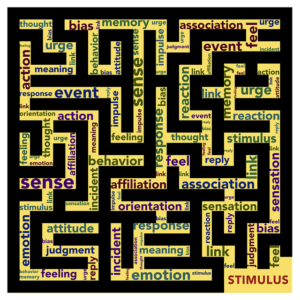Inquiry Into The Physical Body - Guest Post By Coach Fanny
One of the most essential things to learn in life is not taught in schools – that’s why I have a job…
How to take care of your body and mind is clearly not an easy task; The numbers for obesity and mental health conditions to name two, are high. I’d like to encourage you to think about how well you actually know your physical body:
- How well can you feel your body?
- If you close your eyes can you feel the third toe of your left foot?
- Does your mind and body speak the same language?
- If you tell your body to sit down into a deep squat, can your body do it?
If you realised the answer to the questions above are NO, then you have some work to do and that is absolutely fine, but you should start today…
To make an inquiry into the body doesn’t have to mean that you study the anatomy of the body. To know that the long headed tricep brachii origins at the infraglenoid tubercle of scapula and inserts at the olecranon process of ulna, is highly unnecessary for the layman. Unless they’re greatly interested, they will forget it as it’s useless information to them
What is useful though is knowing HOW these different tissues of the body FEEL in different positions and situations
Have you ever been to the Physio because you’ve had an injury that you feel you should do something about? If so, did you when explaining your reason for being there: point to the spot where you feel the pain or discomfort and said it hurts when I do X?
Or did you say: “it hurts inferior to the malleolus on my left foot when I invert it”?
It’s likely you’re the first person. I am too

Knowing how different parts of your body feels in different positions and situations are useful information for learning the language of your body. When you know the language, you can start communicating better!
Learning The Language Of Your Body:
1) Listen to the body (read: pay attention to how you “feel”)
When you are still – What does it feel like? When you move – What does it feel like? When you are stressed – What does it feel like?
Practicing feeling your body in stillness, in motion and in chaos will give you valuable insights into how you ‘hold’ your physical body, basically what it feels like. It’s like genuinely listening to your friend who every day comes to you with a new state of being and you need to listen- in to give the appropriate support
2) Be curious
When you were young you lived next to a 65year old Spanish woman who loved baking. She often came over to your house smiling with big plates of treats as she spoke to you in Spanish. Ever since your ears poke up with curiosity when you hear Spanish and with the same curiosity you should regard your physical body
“I wonder how far I can jump on one leg”
“I wonder if I can climb this tree”
“I wonder if I can kick up into a handstand and find balance”
Communicate With The Body:
1) Understanding –
You have now practiced feeling and being curious about your body. This means you can start to observe and understand how your physical body works in different situations. Reaching this point is essential for knowing how to shape your physical practice:
You get a pinch at the front of your hip and at first you don’t understand why or when it occurs. But after moving around in a few ways you realise it is every time you flex your hip as when you’re doing deep squats and lunges. The pain (feeling) made you try different movements (curiosity) to better know (understanding) when you experience the pain
2) Request more –
Inquiry into the physical body is a great tool for requesting more. Asking the physical body to expand its current perception of what it can and cannot do is now within range. You know your body’s language like you can speak Spanish to your neighbour asking her to make more treats for you
This communication will make it possible for you to move better
Try new things, see what your body can do now and how far it can go later, how can you work around an injury without aggravating it, how can you cultivate your physical body with these explorations?
When communication is more efficient one would think that the risk for injuries can decrease and the attractive capacities like strength and mobility can increase. From personal experience I would say this is true, but you would need to try it out for yourself.
Learning to efficiently communicate with your physical body is a forever evolving skill that you will practice repeatedly, because your life is forever evolving. Time and experience will make it easier to recognise and draw similarities to your current situation, but it will never be the same as yesterday because you are not.
If this was taught in school, would I still have a job? I think I would, but maybe it would look different. Training at a place like Jungle Brothers Strength and Movement in Botany is so much more than the education of these things
You, sitting behind the screen reading this, already know
Thanks for reading. Please leave your comments below or get in touch Fanny@mobilitytraining.com.au
/Fanny.
